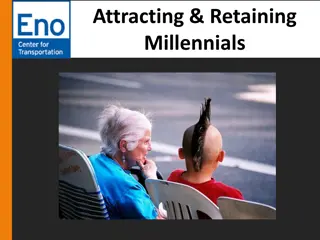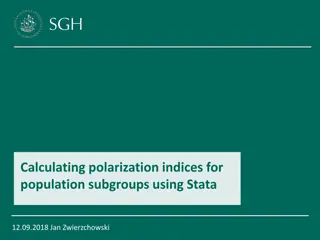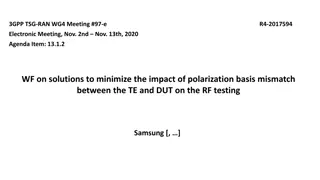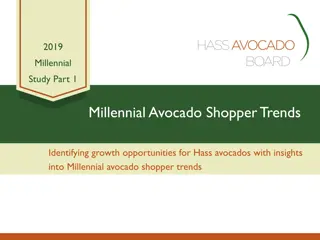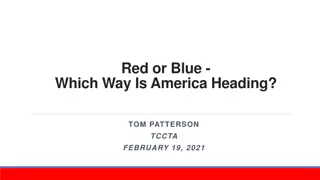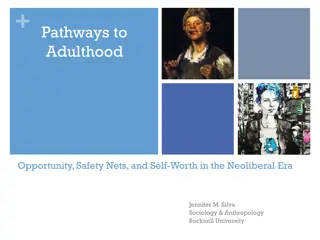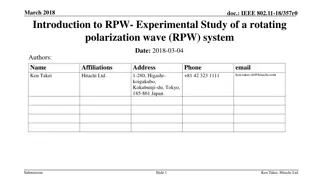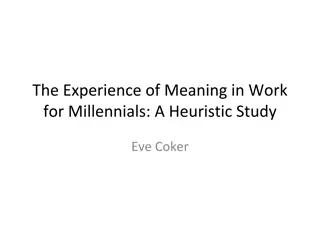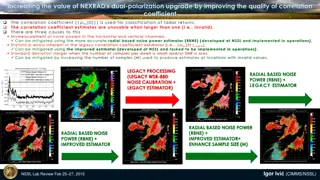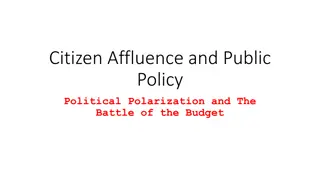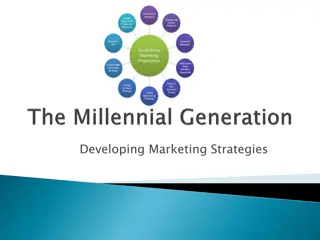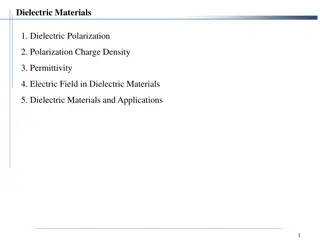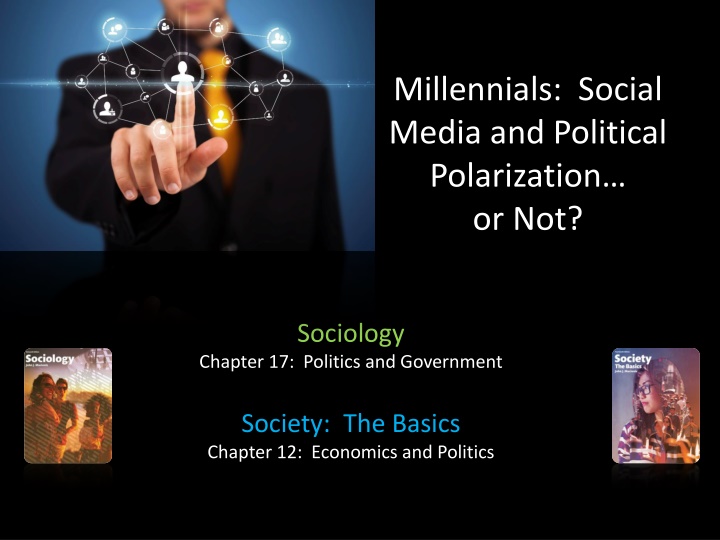
Social Media Impact on Millennials' Political Perspectives
Explore how social media influences Millennials' political attitudes, discussing polarization, filter bubbles, and exposure to diverse viewpoints. Analyze the role of platforms like Facebook in shaping opinions and widening perspectives.
Download Presentation

Please find below an Image/Link to download the presentation.
The content on the website is provided AS IS for your information and personal use only. It may not be sold, licensed, or shared on other websites without obtaining consent from the author. If you encounter any issues during the download, it is possible that the publisher has removed the file from their server.
You are allowed to download the files provided on this website for personal or commercial use, subject to the condition that they are used lawfully. All files are the property of their respective owners.
The content on the website is provided AS IS for your information and personal use only. It may not be sold, licensed, or shared on other websites without obtaining consent from the author.
E N D
Presentation Transcript
Millennials: Social Media and Political Polarization or Not? Sociology Chapter 17: Politics and Government Society: The Basics Chapter 12: Economics and Politics
Millennials Millennials are are less likely to be affiliated with religion, more likely to be politically independent, the most diverse and educated generation in U.S. history, the largest generation in the U.S. labor force, the first generation to grow up with the Internet, cell phones, smart phones, and tablets.
Percentage of Millennials Who 90% 80% 85% 70% 69% 60% 50% 40% 45% 30% 20% 10% 0% Place importance on keeping up with the news Get news daily Regularly follow five or more "hard news" topics
of Millennials get news from Facebook regularly; more than half do so daily. Facebook was the most-cited gateway to news for 20 of 24 separate news and information topics. Older Millenials use an average of 3 social networks; younger Millennials an average of 4.
But do these behaviors have a polarizing effect?
Some evidence suggests that obtaining news via social media creates a polarizing filter bubble. When college students viewed the Facebook pages of political candidates they tended to base their opinions of the candidates on Facebook community-based cues. they read the comments to gauge others opinions of the candidates as well as to see how candidates responded to and interacted with citizens.
Other studies conclude that bumping into news via social media widensthe perspectives to which Millennials are exposed. 70% of Millennials say that their social media feeds are comprised of diverse viewpoints evenly mixed between those similar to and different from their own. And 73% of those investigate others opinions at least some of the time with a quarter saying they do it always or often.
Discussion Questions To what degree do social media shape your political attitudes? Explain. Do you think social media broaden people s political perspectives? Or do you think social media contribute to political polarization?

